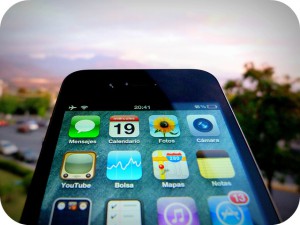 Last week, a judge ordered Apple to help the FBI unlock an iPhone used by one of the perpetrators in the San Bernardino mass shooting. Despite the gravity of the case, the tech giant refused the government’s request on the grounds that such an act would compromise the security of all its customers. “We feel we must speak up in the face of what we see as an overreach by the U.S. government,” said Apple CEO Tim Cook in a widely distributed statement. “Ultimately, we fear that this demand would undermine the very freedoms and liberty our government is meant to protect.”
Last week, a judge ordered Apple to help the FBI unlock an iPhone used by one of the perpetrators in the San Bernardino mass shooting. Despite the gravity of the case, the tech giant refused the government’s request on the grounds that such an act would compromise the security of all its customers. “We feel we must speak up in the face of what we see as an overreach by the U.S. government,” said Apple CEO Tim Cook in a widely distributed statement. “Ultimately, we fear that this demand would undermine the very freedoms and liberty our government is meant to protect.”
Similar statements by bosses at Google, Twitter and many other tech firms soon followed Cook’s defiant message. The Justice Department also responded quickly, saying it was “unfortunate that Apple continues to refuse to assist the department in obtaining access to the phone of one of the terrorists involved in a major terror attack on U.S. soil.” While amounting to little more than a war of words now, the situation will undoubtedly intensify once Apple files a formal challenge to the court. Experts expect that this will set the stage for a showdown between tech’s two stickiest subjects: privacy and security.
While these have been contentious topics for years, this particular case encapsulates the conflict like nothing else in the past. It all starts with the phone of Syed Rizwan Farook, who along with his wife shot dozens of his San Bernardino County coworkers. Farook’s government employer gave state investigators permission to access the phone’s contents. However, he had installed a feature that deletes the phone’s contents if the user fails to enter the correct passcode within ten attempts. In order to circumvent this barrier, Apple says that it would need to create an entirely new operating system on the phone free of any security functions. Once created, the company claims that criminals could then use this operating system to bypass the defenses of any iPhone simply by entering the device’s ID number.
Still, Apple hasn’t been entirely uncooperative with the FBI’s requests. The company handed over all the backup information that Farook uploaded to the cloud before the attacks. This concession didn’t satisfy investigators, though, since they believe the phone could have more valuable information saved directly to it. The government’s grapple with Apple will likely end up in the Supreme Court, but the U.S. isn’t the only nation interested in the outcome of this dispute. Human rights activists in China are especially concerned about “back doors” to digital devices that could be exploited by the government to spy on citizens. So no matter how this battle between privacy and security ultimately pans out, its consequences will be global in scope.
Questions:
- Does Apple’s refusal to aid the FBI affect its brand image? Will the company’s reputation benefit or suffer from this situation?
- Should companies turn over the personal information of criminals even if that data is encrypted? What sort of precedent could this set?
Source: Devlin Barrett and Daisuke Wakabayashi, “U.S. and Apple Dig In for Court Fight Over Encryption,” The Wall Street Journal, February 17, 2016. Photo by Gonzalo Baeza.
